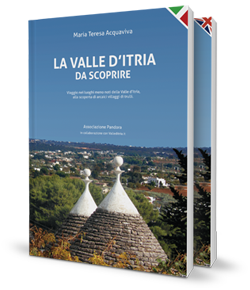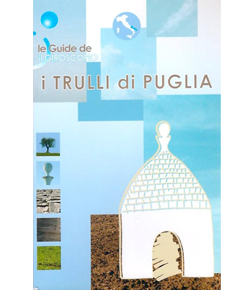Text translated by Google translate.
Ancient villages scattered in the Itria Valley, populated by trulli of all shapes and sizes, some abandoned, others inhabited and sought after by visitors, the Contrade are a fascinating chapter in this magical land.
The districts of the Valle d'Itria are very interesting rural demic aggregations whose architecture and forms of community life handed down contribute to making this geographical area of Puglia exceptional. At their origin there are factors that occurred above all in the nineteenth century which favored the practice of viticulture in extended forms in the Murgia dei Trulli, and in the Valle d'Itria in particular. Until then, agriculture had been dominated by masserie, agricultural and pastoral farms that were experiencing an irreversible economic crisis, accentuated by the arrival of cheap American wheat on European markets.
In the same decades, vine diseases such as iodine and parasites such as phylloxera spread respectively to other regions of Italy and France, producing a strong demand for Apulian wines. Mors tua vita mea, to put it in Latin, because it was then that, on the Murgia dei Trulli, the agrarian class rode the crisis of others and to save from the inevitable abandonment many lands used in the cultivation of cereals converted them into vineyards. The large properties have been divided into lots assigned to settler families, regularizing the work with leases. It was then that kilometers of vineyards invaded the Valle d'Itria which was permanently populated; each vineyard had its palmento (where the grapes were pressed) and a trullo as a permanent residence.
Since then the Valle d'itria has been populated by scattered trulli and by Contrade, the small communities formed by family groups, where they lived using common services such as ovens, palmenti, threshing floors and wells. When a couple married, a new trullo was built and so over time the villages, germinating, often assumed circular shapes, with the houses around a town square (in the dialect of Locorotondo called iazzile).
There were no social differences in these forms of coexistence, there were no masters and servants, as in the nearby masserie (farms) where a social hierarchy continued to exist. In the Contrade there were simply men who together, with tenacity and pragmatism, carried out an agrarian and landscape revolution in the area.
















